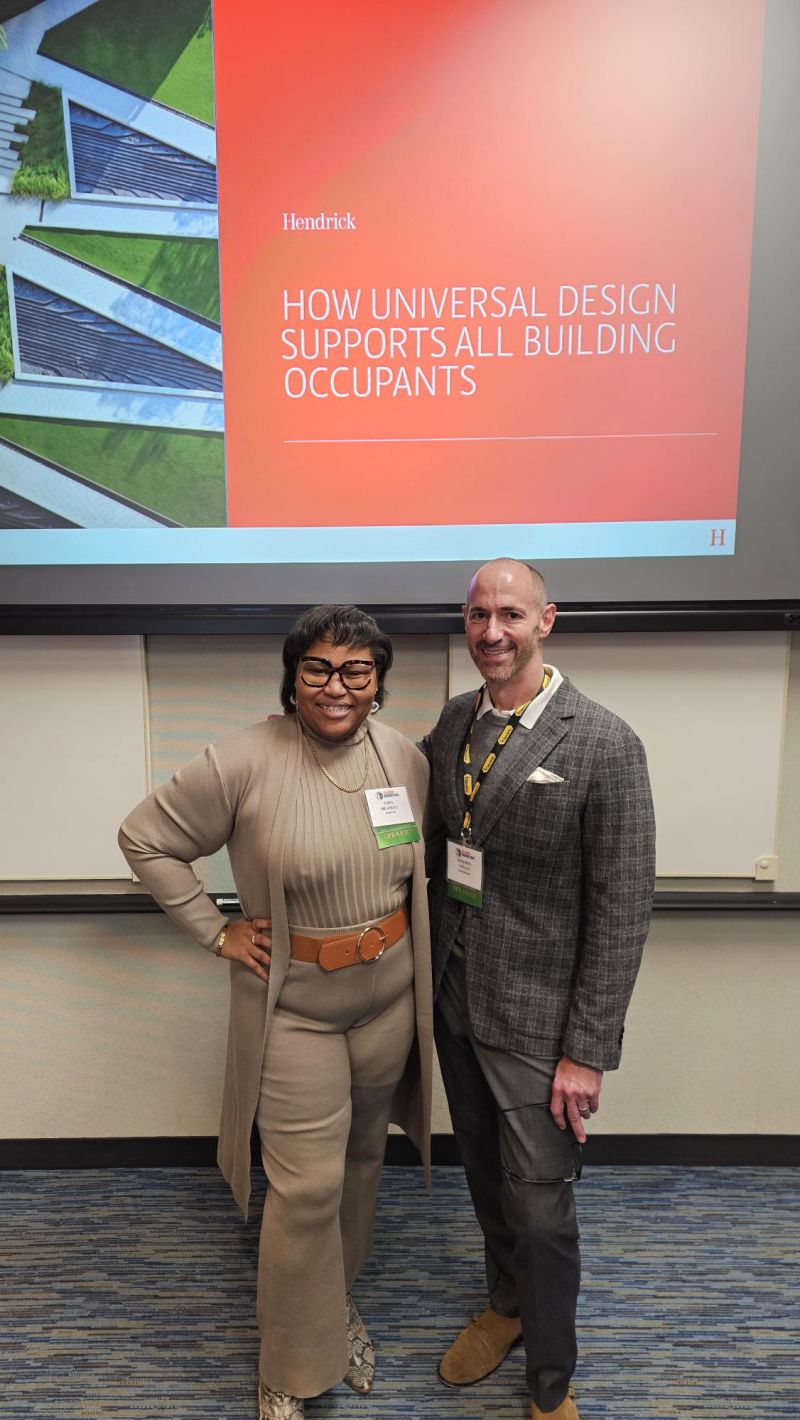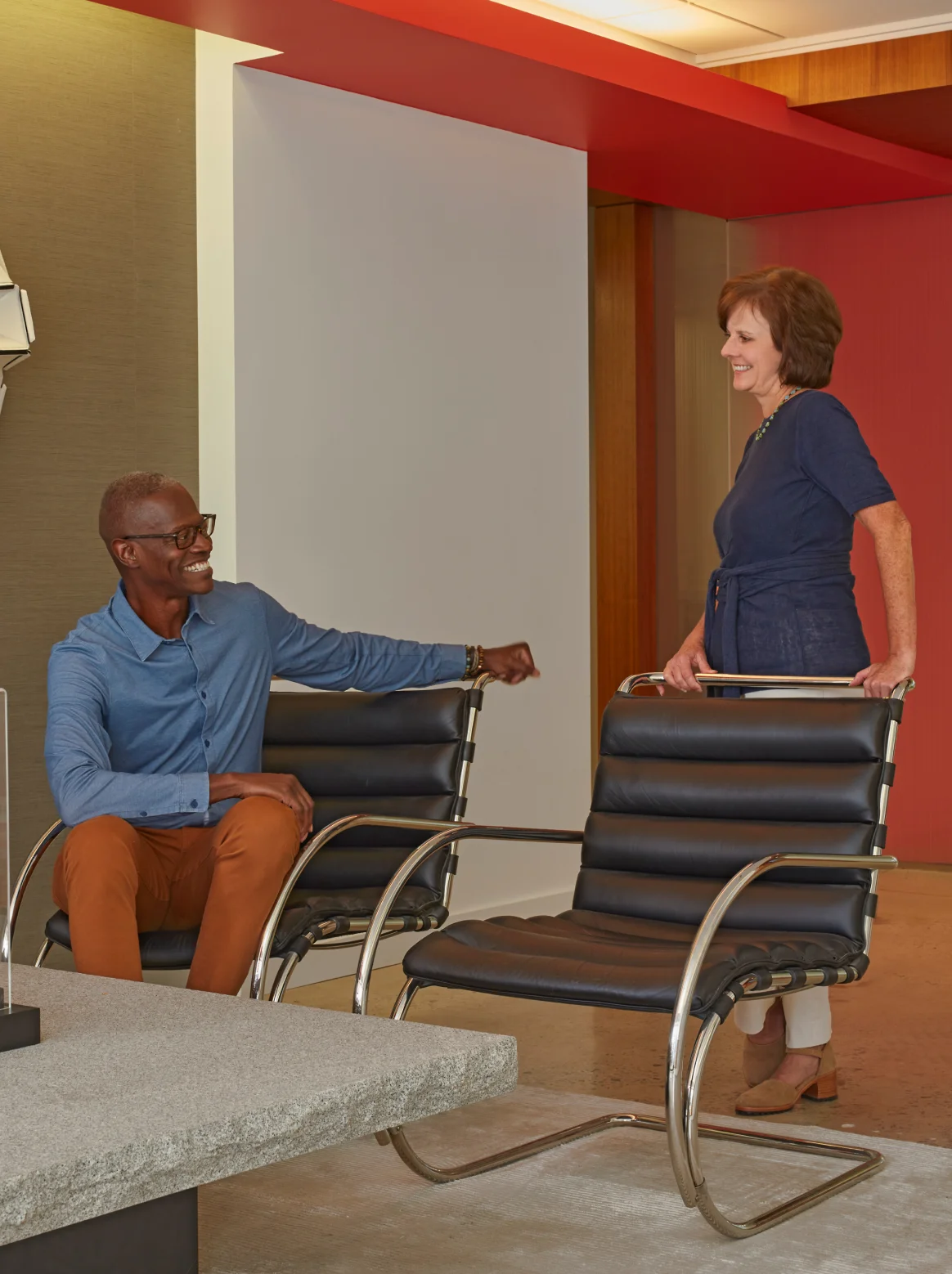
Stephen Wells and Tara Headley of Hendrick shared the importance of Universal Design at this year's IFMA Atlanta Chapter Workplace Conference. The topic highlighted how universal design is more than a trend; it's a fundamental shift in how we approach the built environment. At its core, universal design is about creating spaces that are accessible, inclusive, and equitable for all people, regardless of age, ability, or background. Rather than retrofitting accessibility features after the fact, universal design integrates these considerations from the beginning, resulting in environments that are not only more functional but also more welcoming.
By prioritizing flexibility, intuitive use, and thoughtful navigation, universal design ensures that everyone—from a parent with a stroller to an employee using a mobility aid—can move through and engage with a space with ease and dignity. It’s a mindset that challenges traditional design constraints and instead celebrates diversity as a driver of innovation.
Incorporating universal design is not just good practice—it’s good business. It future-proofs environments, supports aging populations, and contributes to healthier, more productive, and more inclusive workplaces and communities. Ultimately, universal design isn’t about meeting a standard; it’s about raising the standard for everyone.
